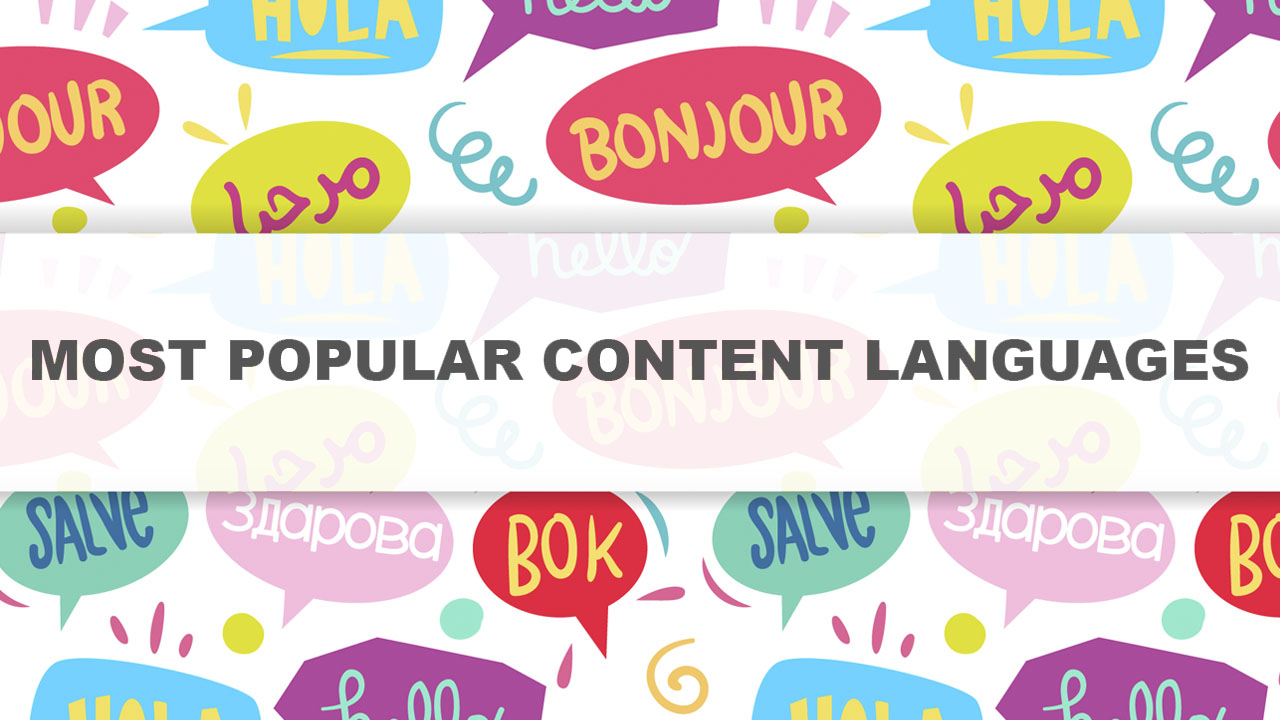Most Popular Content Languages For Your Website
February 20, 2020 | Internet | No Comments

With so many languages available on the Internet, many website owners ask questions about translating or localizing your website.
For a few years now, the English language has dominated the Internet. The dominance has been and still is relatively historically. However, there is a large-scale representation of languages other than English on the Internet. The idea of multiple languages is changing rapidly with the way websites are now operating more than ever. Businesses and individuals around the world should consider translating their websites.
Translating your website is a great idea that you should consider in 2020. There are many benefits to ensuring that your site is available in more than one language. To make things easier for everyone, there are language translation tools that can be used to translate your websites. You can download them from the Internet for offline use and use them, whichever works for you. To help you better understand the languages used on the Internet, Statista figures are the top languages used.
1. English
According to Statista figures, English is the most represented language online. 25.3% of English-language Internet users worldwide. This is no surprise as English has been dominating Internet languages for many years. It was the founding language of the Internet, after which most of the content is in English and then translated to the language of your choice.
2. Chinese
It is assumed that Chinese is the fast-growing language in the world and going by the Statistics, it is true. Chinese are second with 19.8% internet users. With a population of 1.36 billion and others still learning the language, it deserves a second place on the log. To make your website accessible to Chinese speakers it is better to translate your website using the language translation tools found online.
3. Spanish
Believe it or not, there are over 750 million Spanish-speaking people worldwide. About half of them are native Spanish speakers. This means that if you want to reach this population you will have to translate or localize your website. In growing the content followed in Spanish. Spanish speakers are more connected which means they need more content in their language. Statista ranks Spanish third with 8% of Internet users using Spanish. The ranking is expected to increase in the coming years.
4. Arabic
Arabic was a small language used many years ago on the Internet. In 2016, it was also not included in the top ten languages used on the Internet but has become one of the most used languages online. As of 2014, only 37% of Arabic speakers were connected to the Internet, but today there are more than 168.1 million Arabic Internet users worldwide. The language only misses the top three, but it is worth trying to translate or localize your website into Arabic.
5. Portuguese
Like Arabic and Spanish, Portuguese content online has increased since 2011. In 2013, only 47% of Portuguese speakers were connected to the Internet, but as time went on things changed and now 131.9 million Portuguese speakers are connected on the Internet. This means that at least 4.1% of Portuguese-speaking people use the Internet. Although the language may sound like a donkey in a horse race, it comes in fifth place.
6. Indonesian / Malaysian
No one will believe that these languages will take sixth place on the list. With over 98.9 million users online, if they are your target group, it is advisable to translate your website into Malaysian / Indonesian to access them. You can also consider translating or localizing your website into these languages as these people want to get more information about foreign products and services. Use the language-translation tool. They provide better services.
7. Japanese
Japanese has been included in the list of the most popular languages used online on the Internet since the year 2011. Similar to Spanish, Japanese speakers are creating a volume of online content. However, there is a lot of scope for increase. For the Japanese, localizing your website means more traffic, business and an increase in your ROI. 3% of users of the internet are Japanese which translates to 114.9+ million users.
8. Russian
The Russian language has grown online with 103.1+ million users. It ranks seventh on the log as more people are using it to access content on the Internet. In 2011, the population of Russian speakers accessing the Internet grew at a rate of 41.5 percent and is still in a state of growth. Top language translation tools can help you translate or localize your website into the Russian language.
9. French
Now about the language that most people would have thought would take it to the top five in the list of top languages used online. French is surprisingly a decent part of website users, given the fact that it is the official language of 29 countries and France is considered notorious for attempting to protect the French language. However, it ranks ninth in the log with around 2.8 Internet users.
10. German
According to Internet World Stats, in 2015 German was the tenth most common language used on the Internet. Statistics have not changed much. Statista’s new statistics show German as the tenth top language used online with 2.2% of Internet users. Translating your website is easy using the language translation tools found online and you will be able to reach German-speaking people using the Internet.
Translating or localizing your website provides an opportunity to reach a wider audience. but if you’re targeting different communities and cultures, you’ll be more successful by translating your website into multiple languages.